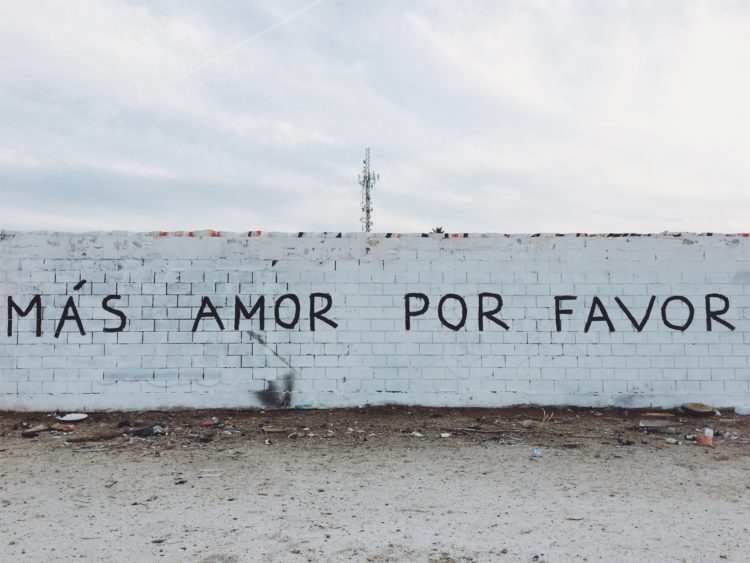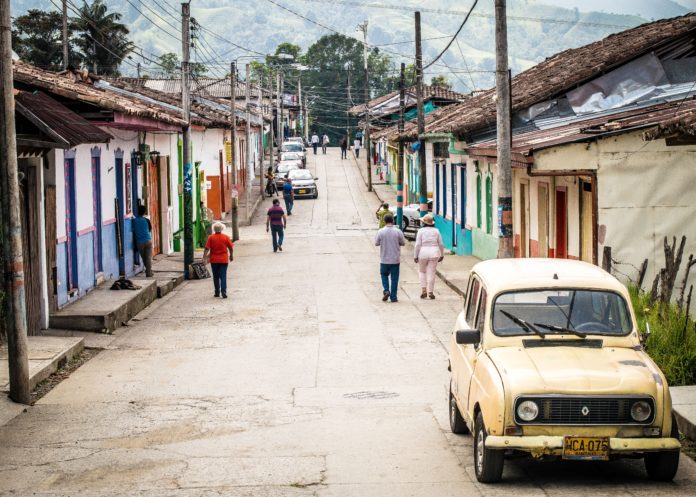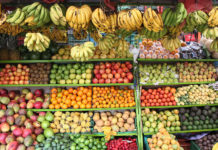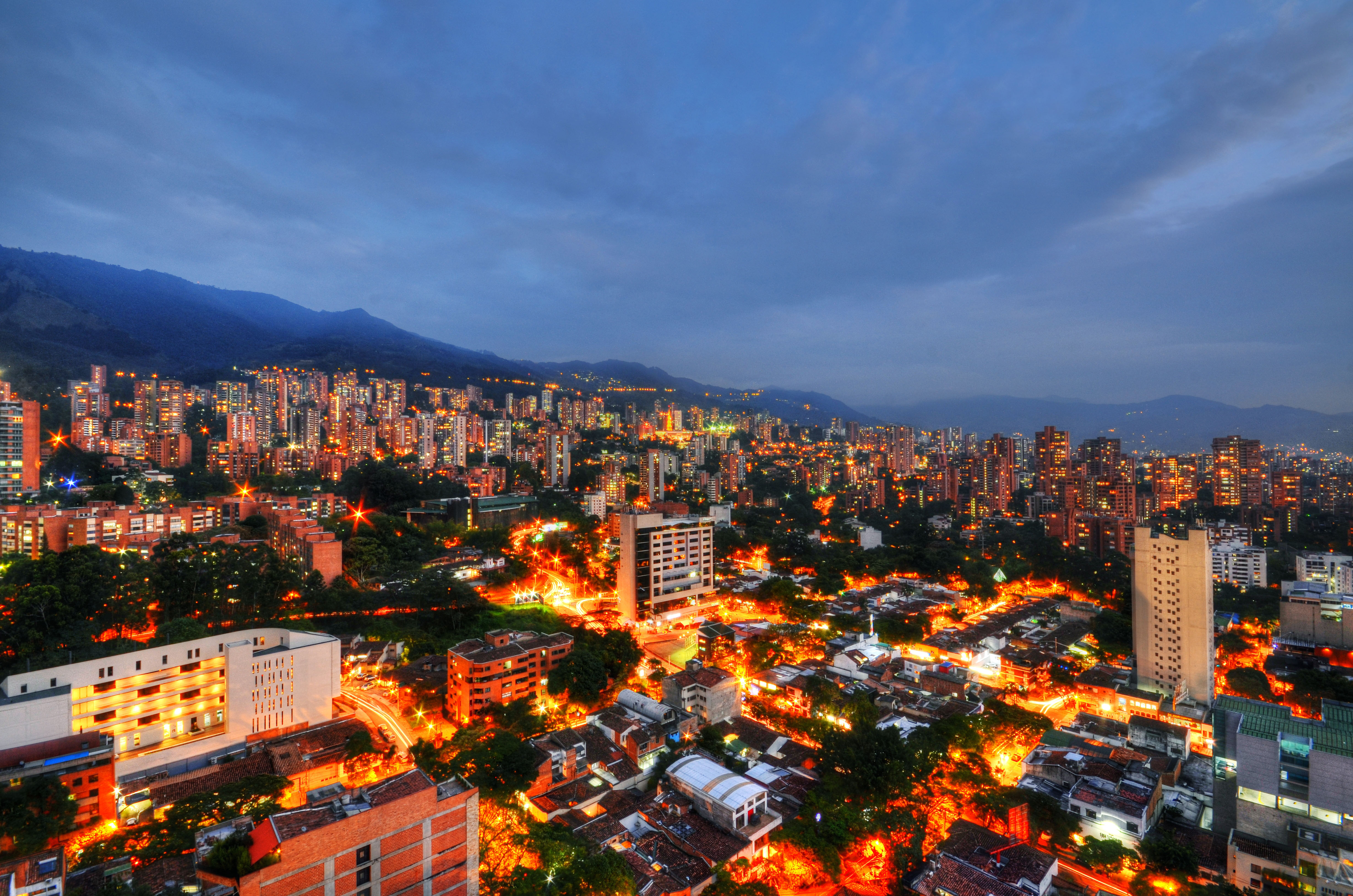Colombian Spanish is known for being the clearest in the world, so it’s no wonder travelers flock here looking to brush up on their foreign language skills. While there are plenty of great Spanish schools across the country, here are a few important words and phrases to get you chatting with people in the street and feeling like a local.
Greetings

Hola – Hello/hi
Buenos días – Good morning
Buenas tardes – Good afternoon
Buenas noches – Good evening
Tenga un buen día – Have a good day
Que estés muy bien – Take care (use at the end of a conversion/transaction)
Chao – Bye
Hasta luego – See you later
Adios – Goodbye (more formal or final)
Cual es tu nombre?/Como te llamas? – What is your name?
De donde eres? – Where are you from?
En qué trabajas? – What do you work as?
Cuántos años tienes? – How old are you?
Como estás?/Que tal?/Como te vas? – How are you?
Basics

Sí – Yes
No – No
Tal vez/Quizás/De pronto – Maybe
Bueno – OK/good
Listo – OK/ready
Claro que sí – Of course
Perdón – Sorry/excuse me
Lo siento – Sorry (stronger than ‘perdón’)
(Con) permiso – excuse me (used to move past someone)
Con (mucho) gusto – You’re (very) welcome
Bien pueda – Go ahead
Muchas/muchísimas/mil gracias – thank you (very much/so much)
No hay problema – no problem
Tranquila/o – Don’t worry/relax
Acá/Aquí – Here
Allí, Allá – There
Derecha – Right
Izquierda – Left
Derecho – Straight
Pare – Stop
Salud – Cheers
Extranjera/o – A foreigner (gender specific)
Tengo una pregunta – I have a question
Lindo/linda – sweet, cute, pretty (used to describe people and objects/experiences)
Amiga/o – Friend/mate
Talking about yourself

Soy de… – I am from…
Estados Unidos – USA
El Reino Unido – UK
Alemania – Germany
Holanda – Holland
Italia – Italy
Francia – France
España – Spain
Mi nombre es/Me llamo – My name is
Tengo… años – I am… years old
Soy una/un… – I am a… (used for profession, the article is normally dependent on your gender)
Estoy viajando en Colombia por… días/semanas/meses – I am traveling in Colombia for… days/weeks/months
No hablo español – I don’t speak Spanish
Mi español no es bueno – My Spanish isn’t very good
Hablo un poco español – I speak a little Spanish
Ya la/lo conozco – I have already been to …/I already know… (use only for places and people)
Quiero conocer… – I want to visit…
Me encanta… – I love… (for places or things, not people)
No me gusta – I don’t like
Estoy… – I am (use for feelings, temporary states)
Muy bien – Very well
Feliz – Happy
Triste – Sad
Cansada/o – Tired
Enojada/o – Angry
Emocianada/o – Excited
Confundida/o – Confused
Tengo hambre – I am hungry
No entiendo – I don’t understand
Tengo guayabo – I am hungover
Estoy perdida/o – I am lost
No tengo dinero/plata – I don’t have money
Voy a… – I am going to… (can be used for physical locations as well as actions)
Vamos a… – We are going to…
Vámonos – Let’s go/hurry up
In a restaurant/café/bar

Me regalas – Can I have? (literally translates to ‘you gift me’, only used in Colombia)
Me gustaría – I would like
(Yo) quiero – I want (use with ‘por favor’ to be polite)
Tienes…? – Do you have?
Dos cervezas por favor – Two beers please
Disculpe – excuse me (use to get a member of staff’s attention)
Podemos ver la carta? – Can we see the menu?
Una mesa para cuatro personas por favor – A table for four people please
Necesitamos cinco minutos mas – We need five more minutes
Hay platos sin… – Are there dishes without…?
Tienes opciones para vegetarianos? – Do you have vegetarian options?
Soy alérgica/o a… – I am allergic to…
Donde están los baños? – Where are the bathrooms?
La comida es muy picante? – Is the food spicy?
Que rico/delicioso – Very tasty/delicious (‘rico’ is also used to describe things other than food as good or cool)
Puedo pagar con tarjeta/efectivo? – Can I pay with card/cash?
La cuenta por favor – The bill please
Questions

Me entiendes? – Do you understand me?
Donde está… – Where is…?
El hostel/hotel/apartmento – The hostel/hotel/apartment
El aeropuerto – The airport
El terminal de transporte – The bus station
Cual es la dirección? – What is the address?
Como llegamos allá? – How do we get there?
Cuánto vale/Cuánto cobra/Cuánta cuesta? – How much? (use for asking the price of something)
Qué significa? – What does it mean?
Cómo se dice…? – How do you say…?
Por favor, otra vez? – Again, please (use when asking someone to repeat something)
Tienes recomendaciones por acá? – Do you have recommendations for here?
A cuántos minutos es? – How far away is it?
Estamos cerca de…? – Are we close to..?
A qué hora? – At what time?
Conoces a…? – Do you know…? (use only for places and people)
Sabes si hay…? – Do you know if there is… (use only for information)
En serio? – Really?
Quieres una bebida? – Do you want a drink?
Tienes una novia/un novio? – Do you have a girlfriend/boyfriend?
Paisa slang (used in Antioquia, Caldas, Risaralda and Quindío)

Parce/Parcera/o – Hommie
De una – OK/let’s do it
Dale – OK
Bien o qué?/Bien o no? – How are you?
Vos – You (informal and singular, essentially a whole other conjugation meaning ‘tú’)
Hágale pues – Go ahead/do it
Pues – Well (is often a meaningless addition, use it at the end of any sentence and it’ll make sense)
Qué pena – sorry
Qué más? – What’s up?/How are you? (use informally as a greeting)
Manejas…? – Do you have? (the verb ‘manejar’ literally means to drive but can be used in this context with paisas)
Bacano – cool/good (normally expressed as ‘que bacano’)
M’ija/o – friend/mate (literally translates to ‘my daughter/son’ but can be used among friends in a light-hearted way)
No des papaya – Don’t give papaya (papaya is a Colombian fruit but the expression is a warning not to be taken advantage of. For example, leaving your phone on a table in a busy nightclub is giving papaya because it’s likely to be stolen)
Hacer una vaca – an expression for a group to split/share the costs (literally means to ‘make a cow’ but is essentially like ‘going Dutch’ for more than two people)
Mona/o – a blond person
Mañé – tacky
Paila – bad luck/out of options (said with an action where people tap the side of their neck with a straight hand)
When speaking Spanish, don’t be afraid to make mistakes and remember to be patient with yourself. Colombians will appreciate any effort you make to interact, so don’t be shy asking for help or how to pronounce things. Buena suerte!
Something missing from this list? Let us know in the comments!












